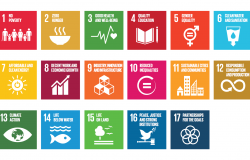
This Policy Insight paper places the UN’s Sustainable Development Goals (SDGs) in the context of good governance. It explores what constitutes Good Governance, from a public administration perspective, and charts the manner in which SDGs and good governance are linked, before suggesting ways in which governments may achieve the aims of the SDGs. It argues none of the other 15 SDGs can be achieved without the coordination and delivery of SDGs 16 and 17. These are at the core of effective public administration and the provision of good governance. Without sufficient numbers of appropriately trained, competent and incorrupt public administrators, working at the local level, none of the other SDGs are widely achievable. We need to recognise, however, important political issues and definitions of good governance are socially constructed and culturally bound; to seek to impose one version on all others risks failure. The paper discusses some of the criteria used by different stakeholders to judge standards of public services. There is a short discussion about how actual and desired levels of performance are set and by whom and to what extent improvement can be measured by a rise or fall in service standards. In other words, whether perceptions of improvement can be objectively measured. The paper draws on cases from the UN’s annual public service innovation awards as examples.